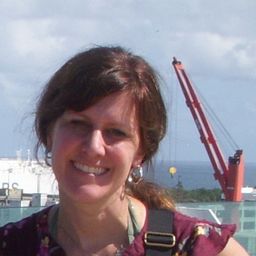Kelley A. McClinchey Title : Exploring Literary Narratives as Place-making Agency: Acknowledging Under-represented Voices in Carribean Tourism Development
Mon statut pour la session
by
Kelley A. McClinchey
Sa key tan parlay lute1(Who hear tell the others)
Critical scholars adopt postcolonial frameworks to problematize the cultural, environmental and political encounters of tourism prioritizing voices from the south to counteract a ‘western’ privileged context (Caton & Santos, 2009; Echtner & Prasad, 2003; Hall & Tucker, 2004; Osagie & Buzinde, 2011). Our existing tourism knowledge often ignores those voices which emanate from traditionally marginalized groups (Hollinshead, 2013; Platenkamp & Botterill, 2013; Teo & Leong, 2006; Tribe, 2007). Fanon (2004, p.236) stated, ‘comrades, the European game is finally over; we must find something different’ yet the critical turn needs to authentically engage with power and inequality in tourism (Chambers & Buzinde, 2015; Kamugisha, 2019). While Caribbean postcolonialism is worthy of critique (Alessandrini, 2010; Craciunescu, 2016; Kamugisha, 2019; Royle, 2014), postcolonial studies still make an important contribution to understanding colonial legacies and tourism in this region (Benjamin & Lapointe, 2017).Literature, as a form of cultural heritage, is a layer of creative production that can add to the (re)building of a place’s profile (Carson, Hawkes, Gislason & Cantrell, 2016) through place-making. Place-making, often associated with sense of place and belonging, is a universal and constant activity; participants embodying place through bottom-up, incremental community driven planning (Lew, 2017; Zhao, 2019). There are several diverse applications of place-making in tourism (e.g. Bachin, 2015; Billington et al, 2008; Durmaz, Platt & Yigitcanlar, 2010; Everett, 2012; Lew, 2017; Mansfield, 2018; Mansilla & Milano, 2018; Nevin et al, 2010; Ole Baerenholdt & Haldrup, 2006) but the role of literature as cultural artifacts for place-making in the Caribbean region warrants further attention. The purpose of this paper is to apply postcolonial thinking to investigate how literary narratives contribute to place-making and further our understanding of under-represented voices in specific regions impacted by tourism development.This study applies hermeneutic phenomenology which is situated within an interpretivist paradigm (Pernecky & Jamal, 2010). Throughout the analysis, the researcher conducts a reading to discover meaning embedded in the text, re-reading sections, making notes and returning to them later, circling back reflecting a hermeneutic circle (Gadamer, 2004; Neuman, 2000). Caribbean texts often portray sides of island life that tourists rarely see (Baleiro & Quintero, 2019; Carrigan, 2010) in genres that offer significant glimpses into the everyday struggles, negotiations and resistances experienced by colonized peoples (Boehmer, 1995). Ten books about Grenada both nonfiction and fiction were examined in this study (e.g. Buffong & Payne, 1990; Campbell, 2013; deCoteau, 2013; Herman, 2016; Jones, 2019; McBarnette, 2014; McKenzie, 2015). Themes emerged that centred on stories of place ‘beyond the beaches’ as well as cultural heritage and everyday life experiences that differed from those, we ‘hear’ or ‘see’ within a tourism context. It is only through a nuanced approach that a future can be founded on social justice (Osagie & Buzinde, 2011).
Cultural texts are repositories through which locals write on their own terms (Baldaccchino & Royle, 2010) acting as creative processes through which scholars can engage local particularities and everyday social complexities (Osagie & Buzinde, 2011). Critics have scrutinized tourism’s role in contributing to community development, spurring a response to more accurately represent tourism as an agent of positive change (Dupre, 2019; Omholt, 2018; Zhao, 2019). This calls for place-making to enhance strategies for community development (Dupre, 2019) such as the inclusion of under-represented communities most notably Indigenous and African descendent populations (Waterton & Smith, 2010). Diversifying tourism ‘beyond the beaches’ can provide power, agency and entrepreneurial opportunity for locals (Baleiro & Quintero, 2019; Sealy, 2018).
